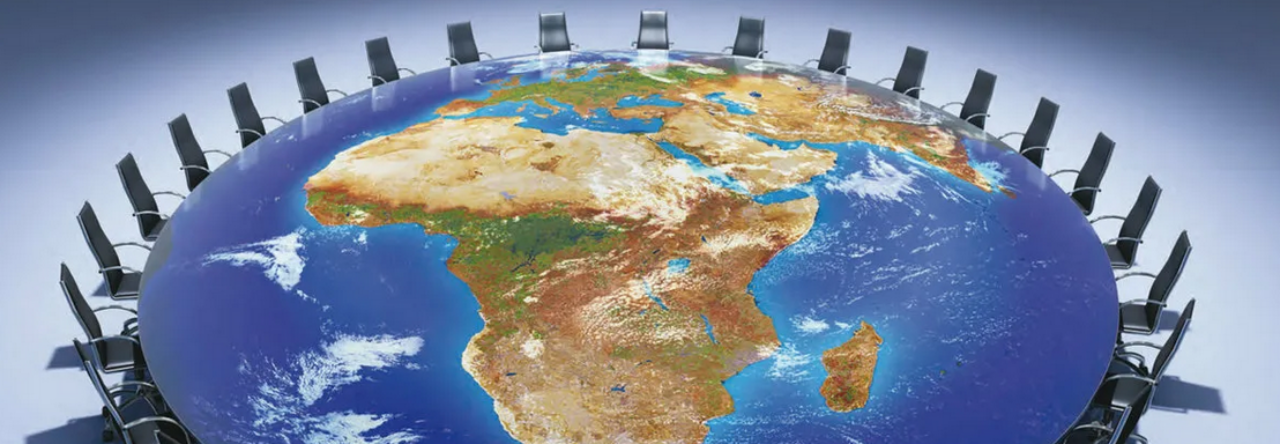
Preventive-Diplomacy
UNAOC (United Nations Alliance of Civilizations) hosts a round-table discussion entitled
SUCCESSES AND FAILURES OF PREVENTIVE DIPLOMACY. METHODS OF IMPROVEMENT
As the world is becoming increasingly multi-cultural, multi-ethnic and multi-religious, it is essential to build the societies that are more inclusive and more peaceful. Diversity is seen by UNAOC as the driving force for progress. However, in many parts of the world it is perceived a challenge that may trigger confrontation and conflict.
Stage1: Prepare a Lead-in
Study the cases of preventive diplomacy in the UN booklet United Nations Conflict Prevention and Preventive Diplomacy in Action. An overview of the role, approach and tools of the Unite Nations and its partners in preventing violent conflict.
You may want to pay more attention to the Burkina Faso case given the recent developments.
Do some research to find more cases of the use of preventive diplomacy tools, both successful and failed. Choose the one you would like to use in the lead-in as an introduction into the matter. The lead-in is down to the moderator, but the discussion stage is to be done as a group. Google Docs will come in handy when you need to share your findings with the other team members.
Stage 2: Topic-related vocabulary
While preparing for the round table, you will be reading articles on the subject and watching related videos. Whenever you come across a word or a collocation pertaining to the topic (within the topic of Preventive Diplomacy these could be words and phrases like mediation, arbitration, fact-finding and fact-checking. good offices, etc.), write it down in your topic vocabulary list. This is best done at Google Docs, where you group all of your findings in a table, as shown in the example below.

In order to have a clear understanding of when and how these new words and phrases can be used, please, consult the English language corpora and Corpus of Contemporary American English online.
Stage 3: Define perspectives for the discussion
At this stage, students do not assume roles yet, they rather speculate on the variety of opinions that could be voiced on the subject and do Internet and other media research.
It is better if the number of perspectives equals the number of attendees, which does not exclude the possibility of some of the speakers having points of convergence.
Here are some examples of the perspectives on Preventive Diplomacy:
• With threats and challenges going global, a premium must be put on preventing conflicts at their very start rather than rectifying their deadly consequences.
• Soft power should be the ultimate tool of preventive diplomacy whereas coercion could be applied only to exert a short-term targeted influence.
Report on your progress in class.
Stage 4: Assume roles and prepare for the role-play
Choose a public figure whose views you would like to present and prepare a set of arguments to support your stance. This task requires both analytical and critical skills.
1. Chairperson UNAOC High Representative makes an opening statement and offers a lead-in, sets the tone of the discussion focusing on the following questions:
• What lessons can we take from the efforts of the 1990s that can apply to contemporary issues of conflict prevention?
• How can UN and other international actors effectively support tolerance and reconciliation through actions aimed at conflict prevention?
• What tools should the UN use to cure the structural causes that lead to conflict arising at the earliest stages possible?
• The challenges that preventive diplomacy faces: underfunding and understaffing, logistics, unwillingness of the conflicting parties to negotiate, reluctance of the governments involved to “internationalise” conflict if the UN steps in or “legitimatise” the adversary, lack of coherence and coordination between state and non-state actors. Read more at The challenges of preventive diplomacy
The list of questions and points for discussion is to be continued by the student that assumes this role (use Google Docs).
You may also want to look up the personality of the UNAOC High Representative
2. Dr.Kevin Cahill, Director of Fordham University’s Institute of International Humanitarian Affairs is an honourable guest, he realised the value of prevention in Public Health. In 1992 he proposed to Dr. Boutros Boutros-Gali that those principles be adapted to diplomacy. In this discussion he will pay tribute to the former secretary-General and his contribution to Diplomacy of Prevention.
Learn more about this personality: Dr. Kevin Cahill’s latest accomplishment
3. Kristoffer Tarp
(see more at http://concordconsulting.org/staff/kristoffer-nilaus-tarp/) promotes the idea of ‘positive peace’ coined by Johan Galtung with an emphasis put on structural changes to societies prone to conflict rather than prioritizing tackling the immediate causes of violent conflict. An efficient government, equitable distribution of resources, free flow of information, and acceptance of the rights of others are among the pillars on which peaceful societies rest. Central to the positive peace discourse is inclusiveness and equality in the way power is exercised and resources are shared. Suggests introducing a more modern version of R2P (responsibility to protect) — responsibility to prevent “The main difference between the responsibility to protect and that to prevent would be a) the absence of the use of force in preventive efforts and b) action at the earliest possible stages of emerging conflict — ideally before conflict turns violent and thus addressing root causes and potential triggers of conflict. As such, the Responsibility to Prevent should appear significantly less threatening to Member States worried about the Responsibility to Protect principles being used to authorise and expand the use of force beyond the original intention and lacking appropriate proportionality as well as a realistic end stage.”
Read more at https://peaceoperationsreview.org/commentary/creating-a-responsibility-to-prevent-at-the-un/
Freeing Prevention From Conflict: Investing in Sustaining Peace
4. Dr. Ghulam Nabi Fai criticizes the UN for its inability to prevent a number of violent conflicts. Questions the very raison d’etre of the UN. Preventive diplomacy: successes & failures
5. Carne Ross, the founder of Independent Diplomat, expands on some of the challenges to preventive diplomacy, unwillingness of official governments to negotiate with opposition groups, and the cases when official diplomacy fails and his organisation has to step in. Carne Ross and Parag Khanna discuss the Future of Diplomacy
An independent diplomat
6. Michael Keating, Executive Director in European Institute of Peace considers that the failures of preventive diplomacy, in cases such as Syria, Libya, Ukraine, where it did “too little too late” are down to the lack of funding and underestimating the importance of prevention, especially when confronted with an impending threat. Follow the link for more information.
7. Katy Collin, an assistant teaching professor and Associate Director of the MA Program in Conflict Resolution at Georgetown University, has a Ph.D. in International Relations from American University’s School of International Service; elucidates on the reasons for failed conflict and crisis prevention in Myanmar, Venezuela and North Korea. See more at Katherine Collin, PhD ; The year in failed conflict prevention.
8. Raimo Väyrynen, Former President of the Academy of Finland and Former Director of the Finnish Institute of International Affairs, considers that it is the failures in Rwanda and Yugoslavia that prompted the development of preventive diplomacy. The successes of preventive diplomacy are difficult to analyse as they are in most cases non-action, whereas the analysis of its failures helps develop coherent strategies and find solutions. Preventive action: Failure in Yugoslavia
9. Stefan Wolf, ethnic conflicts scholar, claims that due to leadership, diplomacy of prevention and institutional design, the number of ethnic conflicts and the number of casualties have decreased dramatically over the past two decades, and this trend is likely to continue. Despite the examples of Georgia (2008), Kyrgyzstan and Darfur, the positive trend is obvious. Peace process in Northern
Ireland, prevention of a full-scale conflict in Macedonia in 2001, endings of the civil war in Liberia in 2003.
Learn more Stefan Wolff the path to ending ethnic conflicts
Stage 5: Roleplay the round-table discussion in class
